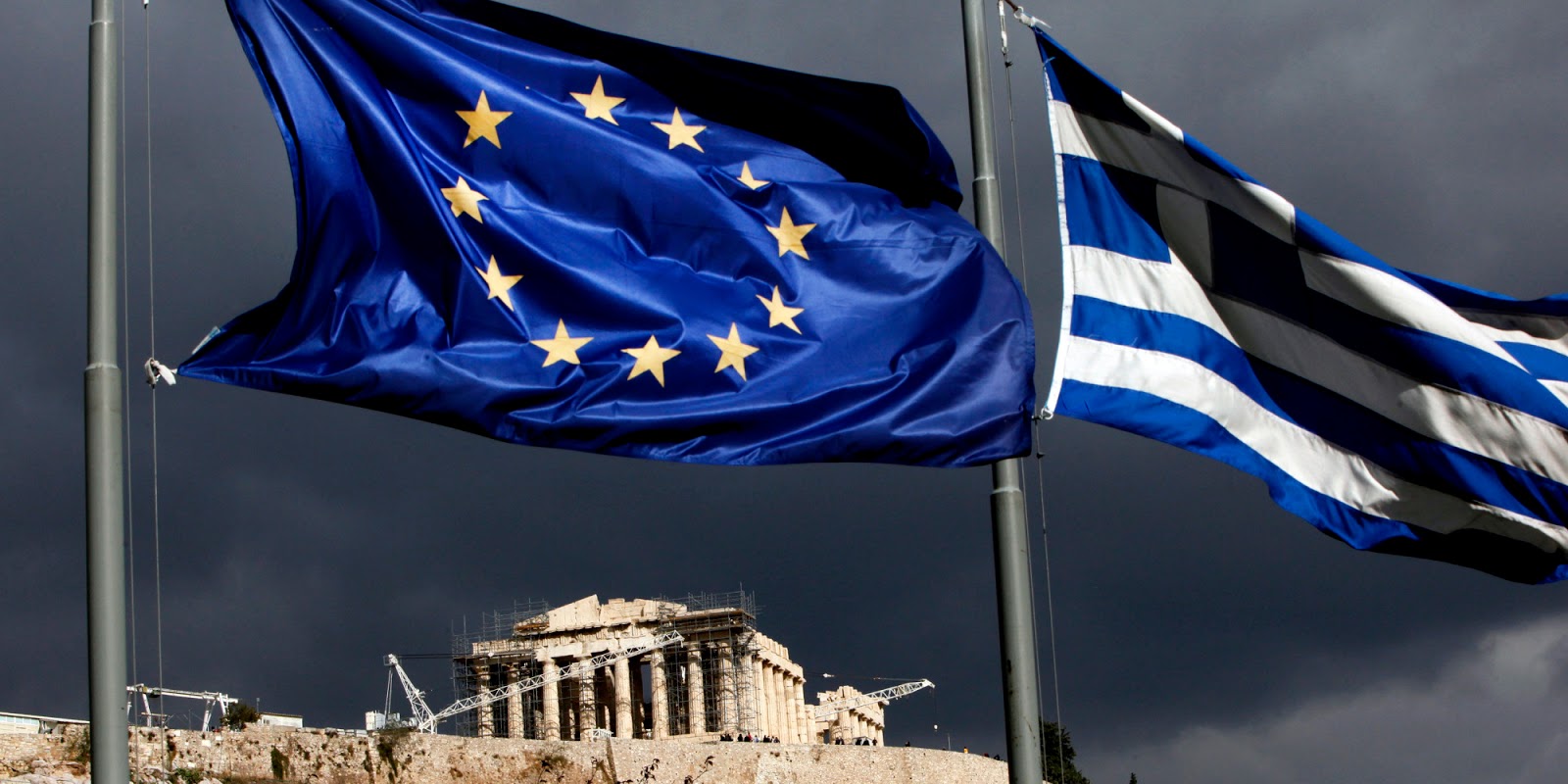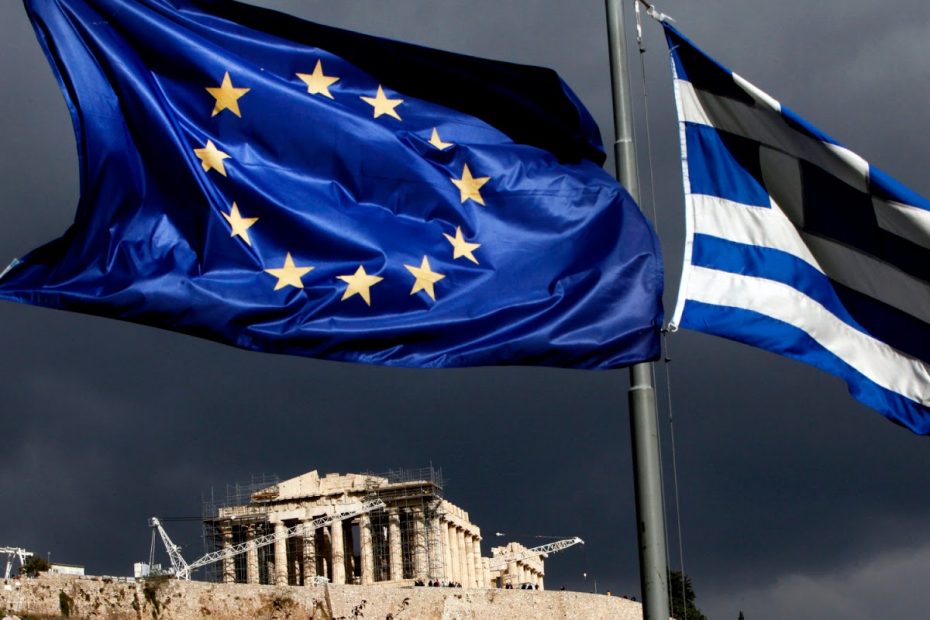Greece is in deep turmoil politically, economically and socially almost from last five years and circumstances are getting even worse. Some economists are saying that Greece could be the first “developed” country which can go into bankruptcy. So what exactly happened? How did Greece get to this point? Let’s find out.

Greece and Eurozone (officially called Euro area)
Europeans countries were always at war with each other and went into huge crises at every level and moreover, they lost its political credibility globally.so it was decided that lost creditability can be recovered only by political, social, legal and economic integration. Hence, at the end of World War II, the continental political climate favoured unity in democratic European countries which lead to the formation of the European Union. Further to make stronger economic integration all the major economies came across with the idea of the eurozone which was introduced in 1999. That is member countries will have the same currency that is Euro and its monetary policies will be governed by a central bank called European central bank (ECB) though countries can control their fiscal policies.it was a successful launch as it valued strong against US Dollar. but there were certain strict conditions to enter into eurozone like the Budget deficit of government cannot exceed 3% government Debt to GDP ratio cannot exceed 60%, lower Interest rates etc. Greece entered the eurozone in 2000.
How did Greece get to this point?
Greece became unstable politically and economically in back in the 1970s due to government coup (dictatorship) but, however, bounced back later. In the 1990s Greece growth spiked and Greece entered the eurozone. And it got inextricably linked with the strong economies like France and Germany which increased its creditability of taking more debt at low-interest rates and as result government spending and public borrowing were skyrocketed.
Government spending which was a major setback was
- Greece Olympics 2004
- Defence deals with the US and Germany(not needed at all)
- pensions plans
- corrupt Tax system(massive tax evasion)
- High subsidy.
Greek people were having access to a personal loan at low-interest rates and they borrowed like hell.All the above-mentioned factors were a burden to the government and also return on the spending was good for nothing and when the international recession of 2008 hit. Greece deteriorated into debt crises and was unable to pay the debt. but now the question arises every government spends like Greece did, but why Greece went into such serious debt crises ??? Well, Greece is not a victim but actually a criminal who understated its debt to the whole world. This came to light in 2009 when the new government of Greece came into power and revealed that they have been falsifying the reports for years and the possibly same thing was done to get into the eurozone.Where Greece stands right now and to whom Greece owes money?Well, Greece is having a total debt of 400 billion dollars which is 170% of its annual GDP and over the next 50 years, they are scheduled to repay the debt. GDP growth in the first quarter of 2015 was -0.2%, the unemployment rate is 26% and there will be no growth expected at least for the next 5 years.So who are Greece creditors? and how much Greece owes to its creditors?

EFSF-European financial stability facility ( an organization made by eurozone members to Pool money and help stabilize member countries in crises).
Banks include the International monetary fund (IMF), European central bank(ECB), Greek banks.
The Greek government has been continuously defaulting on its loan payments since 2011 and interest soared to 24% from 2%.
So to stimulate the Greek economy Bailout package (Financial assistance to failing economy to save it from collapse)of 110 billion euros was proposed by the European Commission. But with some conditions which are known as Austerity (policies in an aim to reduce the government budget deficit).
Austerity measures imposed on Greece are:
- the increase in taxes
- cutting subsidies
- Cutting government spending
Around 20% of a bailout, an amount was received out which 90% was used to pay off creditors and people got nothing which leads to unemployment, protest and riots.

Prime Minister Alexis Tsipras called a referendum for rejecting bailout package and to exit the eurozone and coming back to its own currency Greek Drachma. Greeks also voted in favour of rejecting the bailout. But later the Greek government accepted the bailout package because taking an exit from the eurozone can make things even worse.Impact on India
Of course, there will be some effect on India but not too much. As Euro will be tending to devalue which will make costlier imports for Europeans, but not too much, as Greece is just 2% of eurozone And Exposure of Indian stocks in European market especially in Greece is very less.
Writer’s Opinion
In my opinion, Greece should follow the Iceland model of recovery as Iceland rejected Bailout offers, they also rejected to pay foreign creditors and let their banks fail. They transferred the only domestic loan to new banks. Around 5 years Iceland showed no growth but now they are growing at 3%. Obviously, it involves huge risk but as Greece is not big and dynamic economy they can afford to do this.

Aw, this was a very nice post. In concept I would like to put in writing like this additionally ?taking time and actual effort to make a very good article?however what can I say?I procrastinate alot and certainly not appear to get something done.
Wonderful blog! I found it while surfing around on Yahoo News. Do you have any tips on how to get listed in Yahoo News? I’ve been trying for a while but I never seem to get there! Appreciate it
I’m really inspired together with your writing skills and also with the format for your weblog. Is that this a paid topic or did you customize it your self? Anyway keep up the excellent high quality writing, it抯 uncommon to peer a nice blog like this one these days..
Hello! I could have sworn I’ve been to this blog before but after checking through some of the post I realized it’s new to me. Nonetheless, I’m definitely glad I found it and I’ll be bookmarking and checking back frequently!